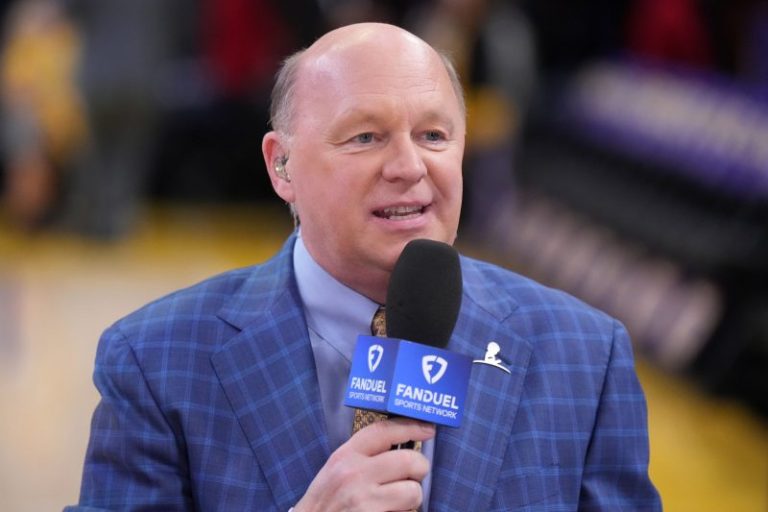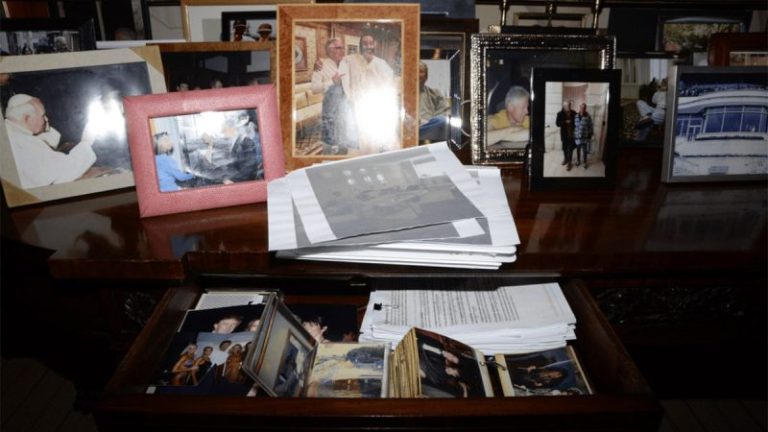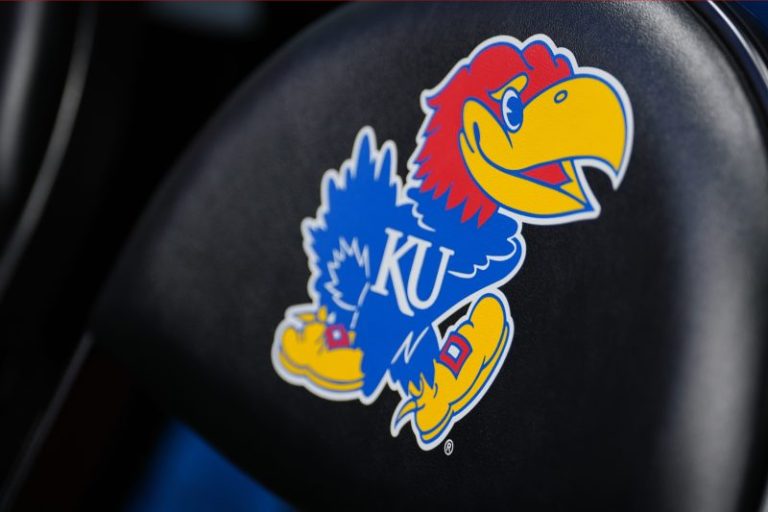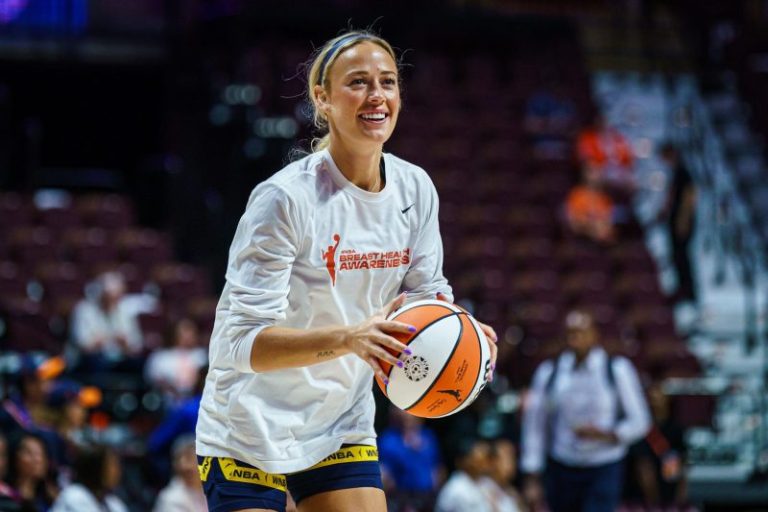The Cleveland Browns defensive end was neutralized throughout most of Sunday’s 23-20 loss to the Buffalo Bills. Garrett did manage to record a half-sack when he and Alex Wright split credit after a stat revision on a play in which Josh Allen was determined to have given himself up. But that still left him a half-sack behind the high-water mark of 22 ½.
The Browns will host the Pittsburgh Steelers in Week 17 for Garrett’s next chance to take his place in NFL history.
Here’s a recap of how Garrett’s day against the Bills went down:
No sack record for Myles Garrett in loss to Bills
Myles Garrett and the Browns both came up short in their respective quests on Sunday.
Garrett finished with just a half-sack – one that was credited after a stat revision – in Cleveland’s 23-20 loss to the Bills. That leaves him another half-sack away from tying the single-season sack record of 22 ½ and a full one away from breaking it.
The Browns, meanwhile, had a chance to mount an unlikely late rally when they got the ball back with just more than two minutes remaining, but a sack and intentional grounding penalty on Shedeur Sanders all but salted the game away.
Garrett can’t reach Allen, but Browns get another chance
In what could be his final opportunity to set the single-season record on Sunday, Garrett couldn’t find his way to the QB. But the Browns have a shot to force a tie or even take the lead.
Buffalo decided to go for it from fourth-and-1 from the Cleveland 30, but Josh Allen couldn’t connect with Dawson Knox in the end zone.
That gave Cleveland the ball with a long-shot chance at rally in the final minutes.
Josh Allen sacked again … but not by Myles Garrett
The Browns got their big shot at Josh Allen. But it wasn’t Myles Garrett who corralled the Bills QB.
On third-and-9, Allen tried to extend the play by going to his left but was met by looping rookie linebacker Carson Schwesinger, who wrapped his arms around the passer for the called sack.
Garrett credit with half-sack in stat change, drawing DE closer to record
Myles Garrett won’t be blanked in the box score after all.
A stat revision has credited both Garrett and Alex Wright with a half-sack each on the earlier play in which both pressured Josh Allen. The Bills quarterback was found to have given himself up on the play, thereby leaving Garrett and Wright to split credit for the play instead of rookie defensive tackle Mason Graham.
That gives Garrett 22 sacks on the season, leaving him a half-sack away from tying the record and a full one away from breaking it.
But getting to Allen could prove exceedingly difficult. Garrett lost his helmet on a fourth-quarter pass rush and then lifted his arms in apparent frustration.
Browns draw closer with needed score
Cleveland is managing to at least stay within striking distance of Buffalo.
After holding the Bills to a field goal following Shedeur Sanders’ interception, the Browns went on a 14-play, 67-yard march that was punctuated by a 1-yard touchdown run by Harold Fannin Jr., who lined up as a fullback on the handoff.
Browns stumble early in third quarter
The second half isn’t proving to be much more promising than the first for the Browns.
Joey Bosa stayed at home on a Shedeur Sanders bootleg and managed to tip the ball in the air. Defensive tackle DaQuan Jones eagerly awaited for it to fall into his hands for the interception at the Browns 25-yard line.
Myles Garrett comes up short on close call
On his first good pass-rushing opportunity of the day, Garrett just barely missed out on tying the record.
Josh Allen backtracked when facing pressure on a second-and-1 play late in the second quarter, with Garrett and fellow defensive end Alex Wright barreling down on him. But both fell down as Allen lost his footing, and rookie defensive tackle Mason Graham was credited with the sack after being the first to touch the quarterback down.
Bills run game continues to roll as Garrett remains quiet
Buffalo isn’t needing to put Josh Allen in harm’s way to get their offense rolling.
The Bills now have touchdowns on all three of their drives, with James Cook scoring his second of the day on a 3-yard plunge. Buffalo now has 132 yards and three touchdowns on the ground.
Allen has just six pass attempts in the game, and he twice found quick-hit connections that turned into long gains on the the third drive.
Opportunities few and far between for Garrett in early going
If Garrett is going to set the single-season sack record today, he’ll have his work cut out for him.
Between a heavy dose of the run game and Josh Allen scrambling to his right, Garrett’s pass rush has been largely out of the mix in the early going. And in one of the rare instances of a true dropback on the second drive, Garrett was met with a double-team.
The Bills surged ahead with Ty Johnson waltzing into the end zone to cap a nine-play, 61-yard drive.
Interception puts Browns defense back on the field
Cleveland’s strong offensive start didn’t carry over to the second series.
Initially, the Browns looked as though they might match the Bills with a strong ground game, as rookie running back Quinshon Judkins scampered for a 40-yard gain on second down. But the play was called back due to holding. On second-and-13 from the Buffalo 31-yard line, Shedeur Sanders threw behind Judkins, who tipped the ball into the air. Jordan Poyer came down with it for the interception.
Bills run over Browns on opening drive
Buffalo evened things up without giving Garrett much of a chance to disrupt things on the opening drive.
The Bills threw the ball just once in the series, with James Cook logging three carries for 67 yards and a touchdown. The two-time Pro Bowl running back gashed Cleveland’s defense for a 44-yard touchdown on the fifth play of the drive.
Browns defense will open with a lead
Well, here’s some unfamiliar territory for Cleveland.
Garrett and the Browns defense will first come on the field with a lead after the offense marched 69 yards in eight plays, capping the drive off with a 13-yard touchdown pass to rookie tight end Harold Fannin Jr.
Myles Garrett says he’ll set NFL single-season sack record today
Garrett isn’t shying away from a sizable stage, saying Sunday he fully expects to set the sack record today.
‘That’s been written since the very beginning of the year,’ Garrett said during CBS’ pregame broadcast. ‘I already knew the record was going down. Today’s the day to make it happen.’
Myles Garrett’s incredible pass-rushing efficiency
Not only might Garrett set the sack record in just 15 games, he’s also poised to do so despite facing far fewer dropback opportunities.
Will Myles Garrett set NFL sack record against Bills?
If recent history is any indication, Garrett has a good shot to at least tie the record.
The ninth-year pass rusher has had at least one sack in 10 of 14 games this season, and he hasn’t been blanked since mid-October.
Though the 6-5, 237-pound Josh Allen will be difficult to bring down, the reigning NFL MVP is tied for sixth in sacks taken with 33, putting him on track to set a new career high in that category. The Bills as a whole have typically fared well not surrendering quick pressures, as they rank third in ESPN’s pass-block win rate statistic. But Allen will be under pressure to have a quicker trigger, given that his 2.92-second time to throw average is tied for the seventh-highest mark among all quarterbacks.
If the Bills jump out to an early lead, however, Garrett might not have many chances to set the mark later in the game. Buffalo boasts an offense that’s not just the league’s most run-heavy unit but also one of the most effective on the ground, ranking second in the NFL with 5 yards per carry.
“The guy’s unbelievable,” Garrett told reporters this week of Allen. “What he can do at the quarterback position, with the ball in general, there’s no one like him. So it’ll be a fun matchup. He’s the reigning MVP for a reason. So we’ll have to stop him. We’ll have to stop that running game. We’ll have to try and make him one-dimensional, but that’s a hell of a dimension to have.”
What Josh Allen said about facing Myles Garrett
Busy with Buffalo’s playoff push, Allen said he hadn’t paid any mind to the thought that he could end up on the wrong side of history on Sunday.
‘No, I haven’t thought about it,’ Allen told reporters on Wednesday. ‘I do like highlight tapes, but I don’t like being part of other people’s highlight tapes.
‘He’s an absolutely tremendous football player. He’s one of the greatest of all time, and yeah, he’s a force to be reckoned with, and we’ve got to be ready for everything that they can throw at us, but you have to be aware of where 95 is at at all times.’
Myles Garrett has endorsement of NFL’s all-time sack king
Garrett’s march toward history has wowed plenty of the league’s all-time greats, including Bruce Smith, the NFL’s career sack leader.
“He is rare,” Smith told USA TODAY Sports’ Jarrett Bell earlier in December when asked about Garrett. “It’s the way he bends. He’s got the patented move where he gets off the line of scrimmage quicker than anybody, particularly for that size, when he gets in arm’s-length reach of an offensive lineman, he bends. He ducks under the stab of the offensive lineman, and he’s still able to get leverage. It virtually makes him unblockable.”
Who holds the NFL single-season sack record?
Hall of Famer Michael Strahan first set the record in the 2001 season. He was matched by Pittsburgh Steelers outside linebacker T.J. Watt in the 2021 regular-season finale. While Watt had the benefit of an 18-week season, he only played in 15 games that year, missing two contests and part of another due to injury.
Myles Garrett stats, sack total
Sacks: 21 ½
Tackles: 57
Forced fumbles: 3
This post appeared first on USA TODAY










